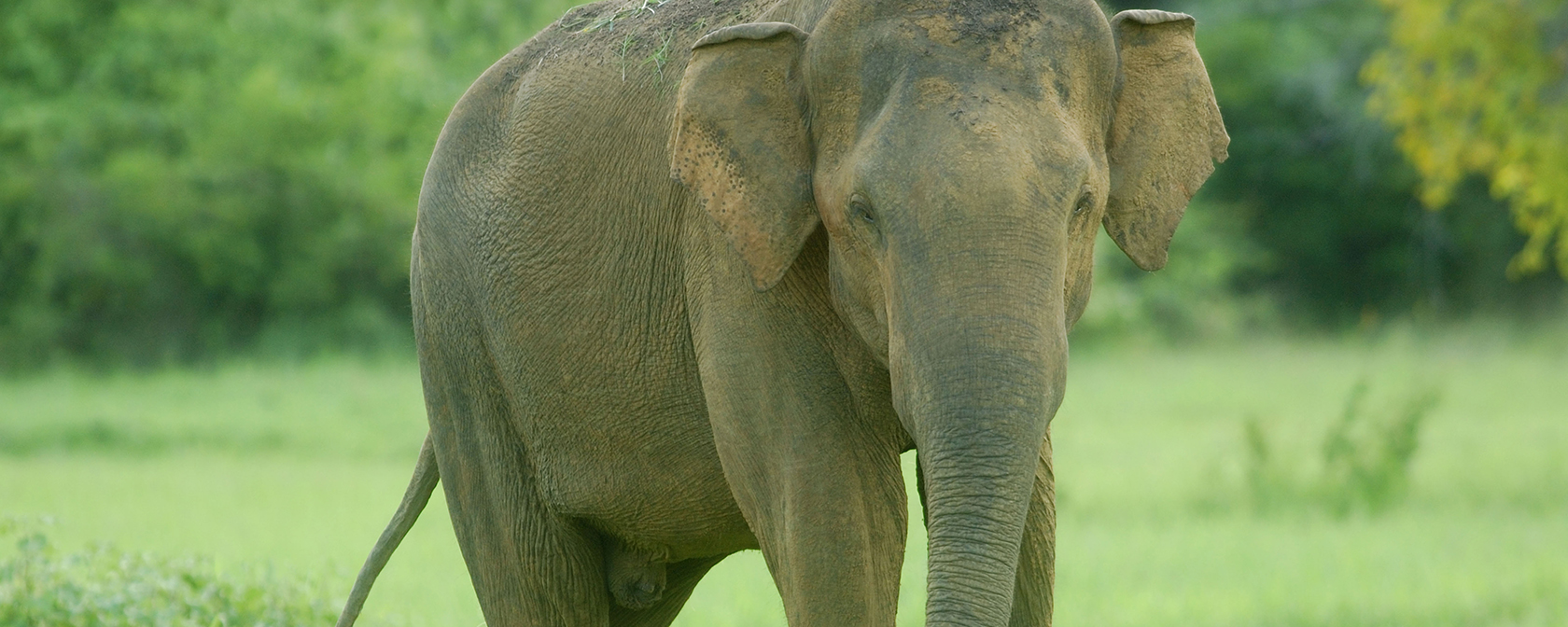[ad_1]
By Sara Amundson and Kitty Block
Earlier this week, an elderly captive elephant named Viola escaped from a circus in Butte, Montana. Viola belongs to Carson & Barnes Circus and was in Butte performing with Jordan World Circus. According to news reports, she wandered through traffic, in front of a casino, and paused on a residential lawn. Videos show handlers with bullhooks—a tool used to hit and inflict pain on captive elephants to intimidate them—chasing and then corralling Viola in the busy downtown, capturing her and bringing her back to the circus. Whatever taste of freedom Viola experienced was quickly put to an end.
This isn’t the first time Viola, who has been forced to perform for circus audiences for decades, has tried to escape. In 2014, Viola sustained lacerations when she and two other elephants escaped from handlers during a show, pushed through a door and exited into a parking lot. In 2010, she fled the circus when it was in Virginia and sustained injuries when she slid in the mud and tumbled down a hill.
Other Carson & Barnes elephants have also fled their captivity. In 2018, one of them escaped and wandered through a residential Wisconsin neighborhood before being caught.
There is always something surreal in images of these elephants wandering in traffic or across strip mall parking lots because it becomes so starkly clear how far they are from any environment in which they could behave naturally. In the wild, elephants are closely bonded with members of their families with whom they may roam many miles in a day. Carted from town to town, these intelligent, emotional and social animals are purposely deprived of anything that is important to them, merely for the fleeting applause of a crowd of human spectators.
Viola’s latest escape highlights once again the danger and the continued cruelty of keeping wild animals caged and chained to haul them around the country in the name of entertainment. No animal should be forced to endure the stress, near-constant confinement, and vicious training that wild animals used in circuses endure, often for decades.
Following decades of public pressure, many of these shows, archaic relics of the past, are giving way to new, reimagined—and animal-free—circuses. Ringling Bros. and Barnum & Bailey Circus transformed itself amid continuing controversy over its elephant use and put on a successful show without a single animal. Just as importantly, state and local legislatures are also hastening the change to a more humane circus, one that isn’t built on coercion and cruelty. A bill ending the use of elephants, big cats, bears and nonhuman primates awaits the governor’s signature in Maryland. Massachusetts and New York legislators are considering similar legislation (New York already prohibits using elephants in circuses, and its bill would prohibit use of other species). Finally, states including California, Colorado, Hawaii, Illinois, Kentucky, New Jersey, Rhode Island and Virginia have all passed various restrictions on the use of wild animals in traveling shows or the cruel devices used to train them. A number of city and town councils in states around the U.S. are considering local bans, as well.
The federal government has a role to play, too. The U.S. Department of Agriculture repeatedly fined and cited Carson & Barnes for Animal Welfare Act violations, including using excessive force on an elephant, failing to provide veterinary care to elephants and other animals, and failing to safely handle and supervise the animals in the presence of the public, including during elephant rides. Yet, it’s still clearly business as usual at Carson & Barnes.
You can encourage your federal lawmakers to support the Better Collaboration, Accountability, and Regulatory Enforcement (CARE) for Animals Act. This legislation would enhance collaboration between the U.S. Department of Justice and the U.S. Department of Agriculture and provide more enforcement tools, including license revocations, civil penalties and a process for pursuing appropriate seizure cases just like this one, in which animals are suffering as a result of Animal Welfare Act violations.
More than 200 localities and nine states have banned these animal spectacles (if signed into law, Maryland will become the 10th). You can take action by fighting to end these animal acts in your community. City by city, state by state and exhibitor by exhibitor we will keep up the fight with you until these cruel acts are finally over.
Kitty Block is CEO of the Humane Society of the United States.
[ad_2]
